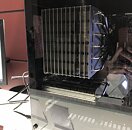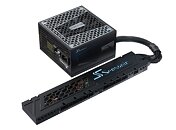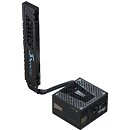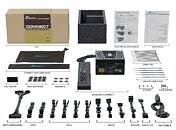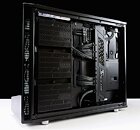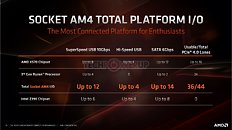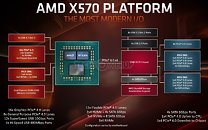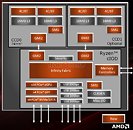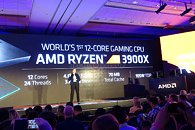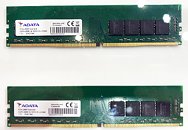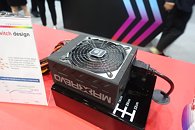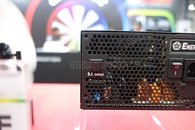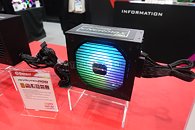AMD X570 is the company's first in-house design desktop motherboard chipset for the AM4 platform. The company sourced earlier generations of chipset from ASMedia. A chipset in context of the AM4 platform only serves to expand I/O connectivity, since an AM4 processor is a full-fledged SoC, with an integrated southbridge that puts out SATA and USB ports directly from the CPU socket, in addition to LPCIO (ISA), HD audio bus, and SPI to interface with the firmware ROM chip. The X470 "Promontory Low Power" chipset runs really cool, with a maximum TDP of 5 Watts, and the ability to lower power to get its TDP down to 3W. The X570, on the other hand, has a TDP of "
at least 15 Watts." A majority of the X570 motherboards we've seen at Computex 2019 had active fan-heatsinks over the chipset. We may now have a possible explanation for this - there are just too many things on the chipset.
According to AMD, the X570 chipset by itself can be made to put out a staggering twelve SATA 6 Gbps ports (not counting the two ports put out by the AM4 SoC). A possible rationale behind this may have been to enable motherboard designers to equip every M.2 slot on the motherboard with SATA wiring in addition to PCIe, without needing switches that reroute SATA connection from one of the physical ports. It's also possible that AMD encouraged motherboard designers to not wire out SATA ports from the AM4 SoC as physical ports to save costs on switches, and dedicate one of them to the M.2 slot wired to the SoC. With the two SATA ports from the SoC out of the equation, and every other M.2 slot getting a direct SATA connection from the chipset, motherboard designers can wire out the remaining SATA ports as physical ports, without spending money on switches, or worrying about customer complaints on one of their drives not working due to automatic switching. This is an extreme solution to a rather simple problem.

